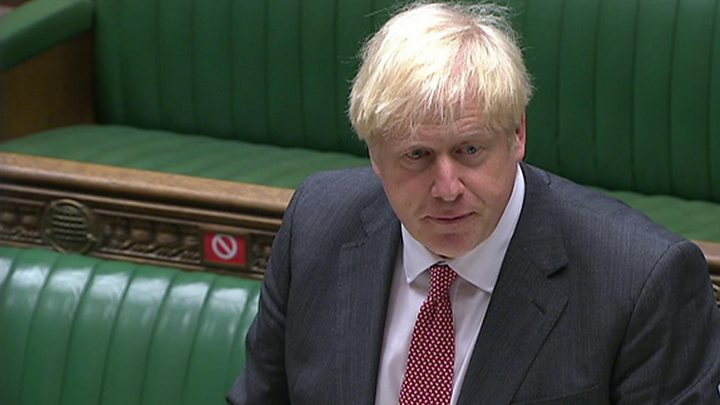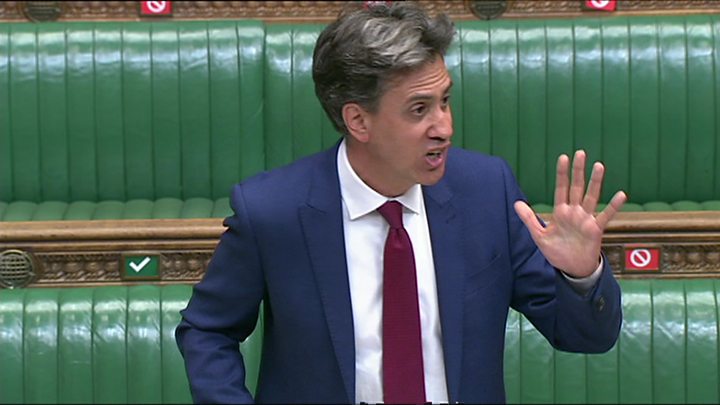
Media playback is unsupported on your device
A proposed law giving Boris Johnson’s government the power to override parts of the Brexit agreement with the EU has passed its first hurdle in the Commons.
MPs backed the Internal Market Bill by 340 votes to 263.
Ministers say it contains vital safeguards to protect Northern Ireland and the rest of the UK, if negotiations on a future trade deal break down.
But critics, including a number of Tory MPs, warned it risks damaging the UK by breaching international law.
Although the government has a majority of 80 in the Commons, it is braced for rebellions in the coming weeks as the legislation receives detailed scrutiny.
Several prominent Conservatives, including former Chancellor Sajid Javid, have said they could not support the final bill unless it is amended, with several expected to have abstained in Monday’s vote.
The bill is designed to enable goods and services to flow freely across England, Scotland, Wales and Northern Ireland when the UK leaves the EU’s single market and customs union on 1 January 2021.
But, controversially, it gives the government the power to change aspects of the EU withdrawal agreement, a legally-binding deal governing the terms of the UK’s exit from the EU earlier this year.
Ministers say this is a failsafe mechanism in case the EU interprets the agreement, in particular the Northern Ireland Protocol designed to avoid a hard border on the island of Ireland, in an “extreme and unreasonable” way.
During a five-hour debate, Mr Johnson claimed the EU’s current approach could lead to excessive checks and even tariffs on goods moving from Great Britain to Northern Ireland.
He said the bill would ensure the UK’s “economic and political integrity”, accusing the EU of making unfair demands to “exert leverage” in the trade talks – including a threat to block food exports.

Media playback is unsupported on your device
But ministers also said they will listen to concerns, insisting that the powers being sought would only be used if other legal avenues had been exhausted and only if MPs explicitly voted to activate them.
Labour said the PM was reneging on a deal he himself signed earlier this year, and on which Conservative MP campaigned in the 2019 election, and was “trashing” the UK’s reputation.
The Commons also voted against a Labour amendment to reject the bill entirely by 349 votes to 213.
MPs will now begin detailed scrutiny of the bill on Tuesday with Conservative MPs seeking further assurances that the UK will not betray its treaty obligations.
